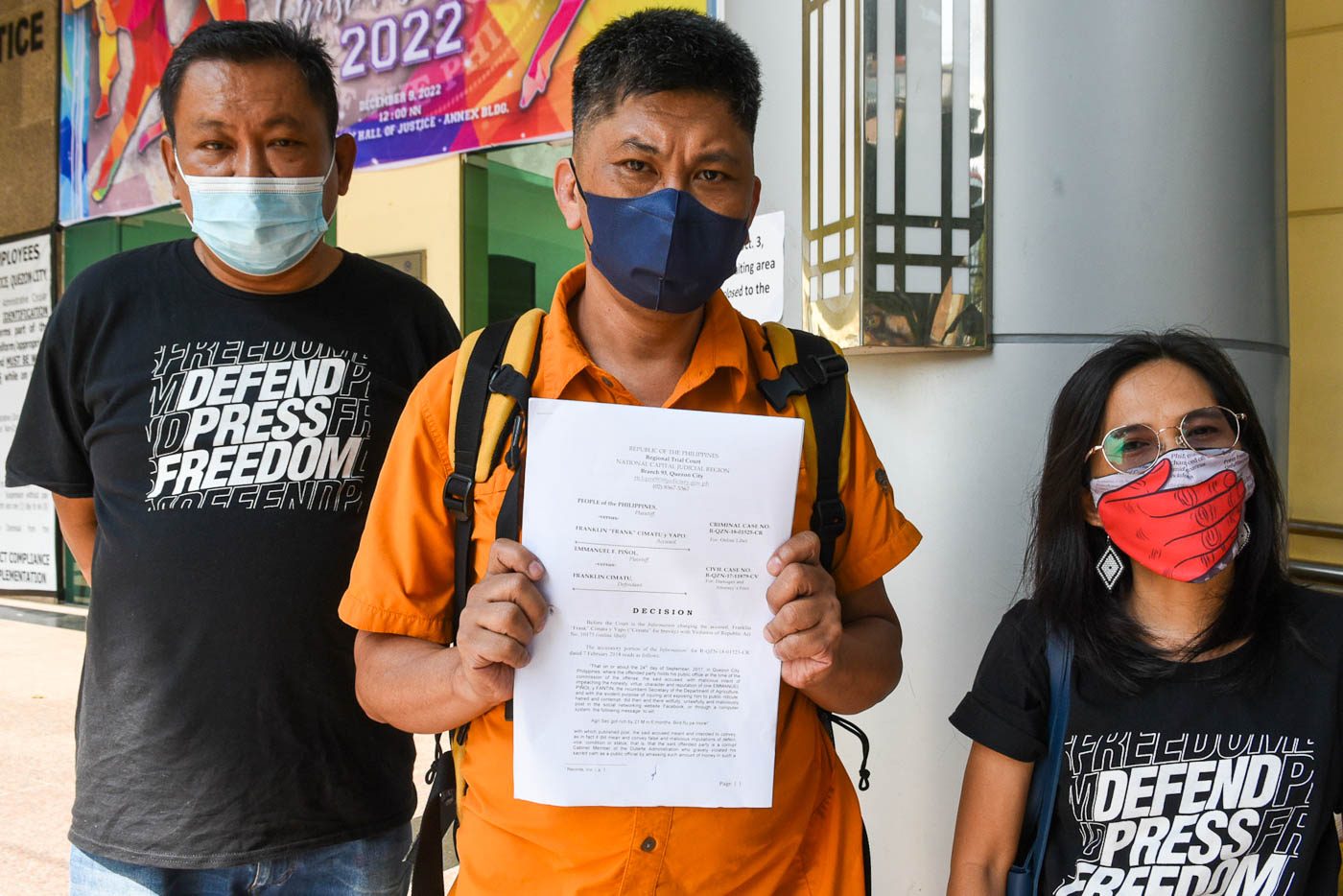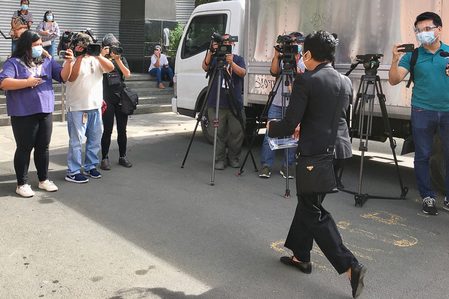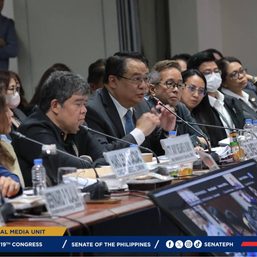SUMMARY
This is AI generated summarization, which may have errors. For context, always refer to the full article.

MANILA, Philippines – A Quezon City court on Tuesday, December 13, ruled to convict Baguio City journalist and Rappler contributor Frank Cimatu of cyber libel over a Facebook post he made five years ago.
The Quezon City Regional Trial Court (RTC) Branch 93 set the jail time for Cimatu from six months, and up to five years, five months, and 11 days. The court also ordered Cimatu to pay P300,000 for moral damages.
“WHEREFORE, premises considered, the Court finds accused FRANKLIN “FRANK” CIMATU y YAPO guilty beyond reasonable doubt of the crime of cyber libel under Section 4(c)(4) of Republic Act No. 10175, otherwise known as the Cybercrime Prevention Act of 2012, and sentences him to suffer the penalty of imprisonment of six (6) months and one (1) day of prision correccional as minimum, to five (5) years, five (5) months and eleven (11) days of prision correccional as maximum,” the decision read.
The decision was made by QC RTC Branch 93 acting Presiding Judge Evangeline Cabochan-Santos. Like any regular court decisions, the RTC’s ruling can still be appealed.
The charge was filed by former agriculture chief Emmanuel “Manny” Piñol over Cimatu’s Facebook post in 2017, which read: “Agri sec got rich by P21-M in 6 months. Bird flu pa more.” Aside from the charge, Piñol also demanded P15 million in civil damages.
Piñol’s resume uploaded in a government site says he ventured into media work, serving as a radio journalist and news writer in Cotabato City.
The promulgation’s date was originally on December 2, but was reset. The promulgation was later scheduled on December 13.
Cimatu’s conviction now dampened the earlier court victory of Baguio City journalists this year. La Trinidad Regional Trial Court dismissed the cyber libel charges filed by former Cordillera police chief against Northern Dispatch editor-in-chief Kimberlie Quitasol and volunteer-correspondent Khim Abalos on May 16.
The decision
In its decision, the court said: “Following a painstaking review of the pieces of evidence presented by both parties, the Court finds that the evidence of the prosecution satisfies the test of moral certainty and is sufficient to support a conviction.”
Defamation
According to the court, Cimatu’s words and his Facebook post appeared to be an imputation of a crime – and defamatory.
“A cursory reading of the Facebook post would show the intention of the writer, herein accused Cimatu, to injure the reputation, credit and virtue of Piñol and expose him to public hatred, discredit, contempt and ridicule,” the Quezon City court explained.
It added that Cimatu “made it appear” that then-agriculture chief Piñol committed corruption and gained P21,000,000 in a span of six months.
On the Facebook status
The court noted it doesn’t matter whether the complainant had heard or read the libelous remarks. What matters is that a “third person has heard or read the libelous statement.”
Citing the settings on Facebook posts, the court said the evidence from the prosecution showed that Cimatu’s Facebook post had a globe icon at the top, which means the post was published using the public setting.
The journalist, in his defense, said his post was made private and that his post was only meant to be seen by his Facebook friends. But the Quezon City court did not agree.
“It is well to note that the element of publication is satisfied from the moment the defamatory statement was made known to a third person,” the court explained.
“While accused Cimatu raised the defense that he posted the same in his Facebook account intended to be seen by his Facebook friends only, the same is immaterial since as already mentioned, the subject Facebook post was made using a ‘public’ setting.”
The court added the element of publication is present in the case since the parties entered into the stipulation that Cimatu’s post is viewable by the public.
On malice, the Quezon City court said Piñol posted a comment on Cimatu’s post and explained his side, but the journalist “did not relent in his actions, but went on to continue defaming the private complainant.”
“This is a clear indication of the intention of accused to malign Piñol, no matter the cost, and is clearly proof of malice,” the court said.
As of November 2022, Department of Justice’s (DOJ) Office of Cybercrime’s data showed that a total of 3,809 cyber libel cases have been filed since the signing of the Republic Act No. 10175 or the cybercrime prevention act in 2012. Meanwhile, data from the National Union of Journalists of the Philippines showed that of the 56 journalists sued for libel, 10 were cases for cyber libel, as of November 2022.
On one hand, journalists and rights groups, as well as media organizations, have been calling to decriminalize libel and cyber libel in the Philippines. In 2012, Supreme Court Senior Associate Justice Marvic Leonen voted to declare cyber libel unconstitutional, saying that the 1930s definition of libel is outdated and will no longer apply to the internet era.
From a legal perspective, on the other hand, lawyer Gilbert Andres of Center for International law earlier said that the government might be wasting resources with cyber libel cases because majority of them end up being dismissed.
At present, there are still 160 countries in the world that consider libel a criminal act. – Rappler.com
Add a comment
How does this make you feel?






![[Rappler’s Best] Patricia Evangelista](https://www.rappler.com/tachyon/2024/04/unnamed-9-1.jpg?resize=257%2C257&crop=486px%2C0px%2C1333px%2C1333px)


![[EDITORIAL] Filipino journalists to China: Yes, we are trouble](https://www.rappler.com/tachyon/2024/04/animated-wps-march-tension-2024-carousel.jpg?resize=257%2C257&crop_strategy=attention)








![[Newsstand] The media is not the press](https://www.rappler.com/tachyon/2024/04/tl-media-is-not-the-press-04132024.jpg?resize=257%2C257&crop=281px%2C0px%2C720px%2C720px)

There are no comments yet. Add your comment to start the conversation.